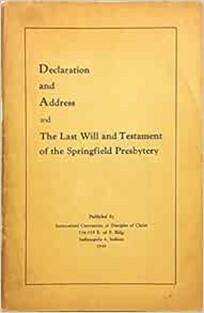Something to Think About this Week - Comfort Food
I love drinking a particular brand of coffee every morning – or as often as I can. Traverse City Cherry flavored, produced by the “Our Family” line of grocery stores. It’s a Michigan company, and the product is not available in Decatur. So every time we go up north to our cottage on Crystal Lake, I hit the two grocery stores in the county and load up on as many bags of it as I can. I then dole it out, drinking it sparingly, so as to make the batch last until I get back up north again (if you’re wondering why I don’t order some online, believe me, I’ve tried). I started drinking it decades ago, and doing so reminds me of cool summer mornings, listening to the birds, and watching the sunrise over the lake.
Our family still uses Andria’s steak marinade too. It’s made in O’Fallon, IL and we first started using it when we lived in Centralia. For the 8 years we lived in Baton Rouge, where it could not be found in our chain of Albertson’s, we had friends ship bottles of it down to us. The same could be said for “Slap Ya Mama,” a Cajun seasoning that we came to adore when living in Baton Rouge. Until we discovered that Walmart in Decatur sells it, we had friends from down south ship it up to us in Central, Illinois. And since living at the I-10/I-12 split, we can no longer think of spending the winter months between Christmas and Lent without homemade King Cakes, thanks to a fantastic recipe Amy learned which uses Crescent Rolls for the dough.
We’ve had three significant moves in our family life and each time, it has been hard to change some food habits we developed along the way. It shouldn’t be surprising. It really is called “comfort food” for a reason, because we are biologically hard-wired to form strong memories around food. Flavors that we taste are tied to the areas of the brain where emotional memories are storied. No wonder, then, that the food we consider “comfort food” is the kind of food that not only makes us feel good, but very likely is food that reminds us of enjoyable parts of our past. If we eat a plate of “Mom’s Meatloaf,” we are likely to be flooded with a host of memories from our childhood.
I understand that any conversation about food can be triggering to some who live daily with challenges related to this. But I lift this up to illustrate how profound a thing our spiritual ancestors did; something described in Acts 15. In building the church and growing the Christian movement in the years after Jesus left them, the early Christians essentially abandoned some long-standing food practices. Certain foods they previously avoided eating were now considered acceptable. Ways of eating and ingredients used in meals, which had been acceptable previously, were now considered unnecessary. If the saying is true that “Old habits die hard,” imagine how much harder it would be to change them if they were related to food and the memories we associate with them and… if the habits were part of food-related rituals believed necessary for salvation. That would really be something. And it was.
So when those early Christians, stuck and in danger of splitting and being divided over food practices, came together, discussed these issues together, and agreed together that everyone should make changes to help the church move forward as one body, they really did a powerfully, inspirational thing.
Blessings – Michael


